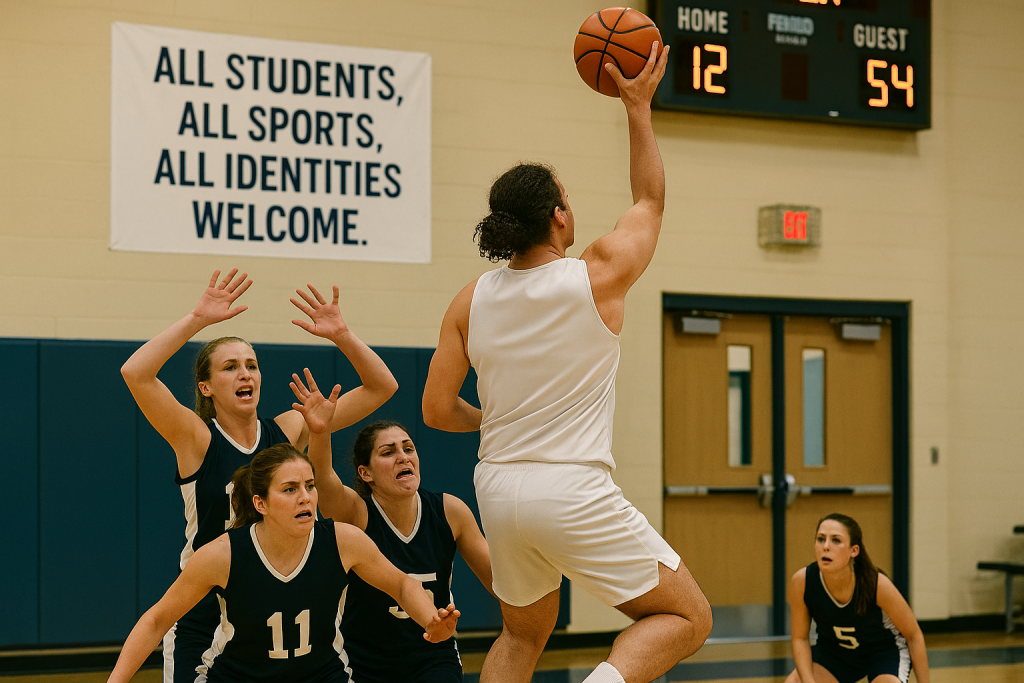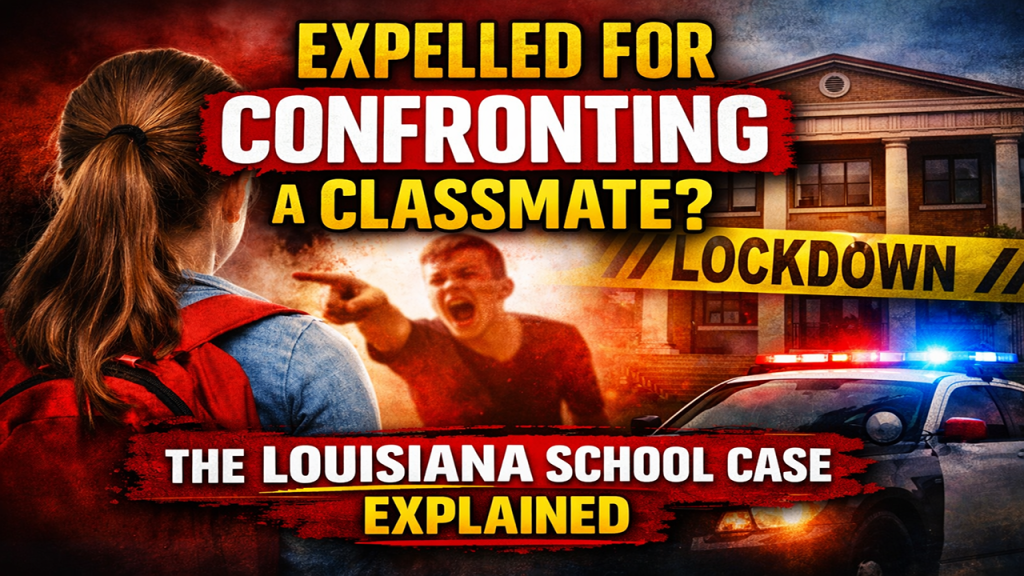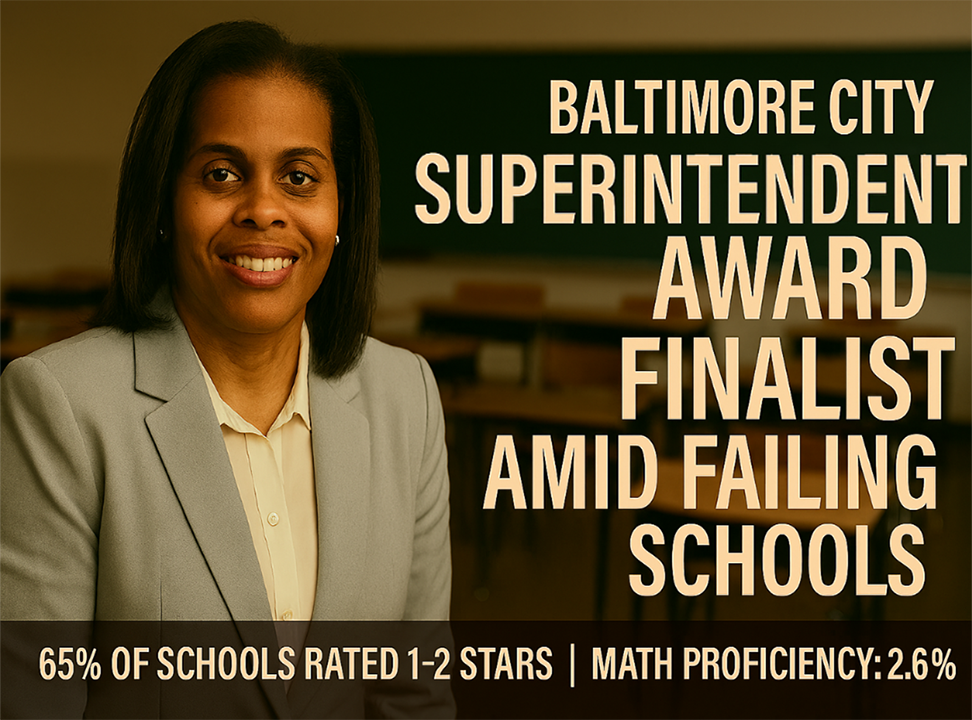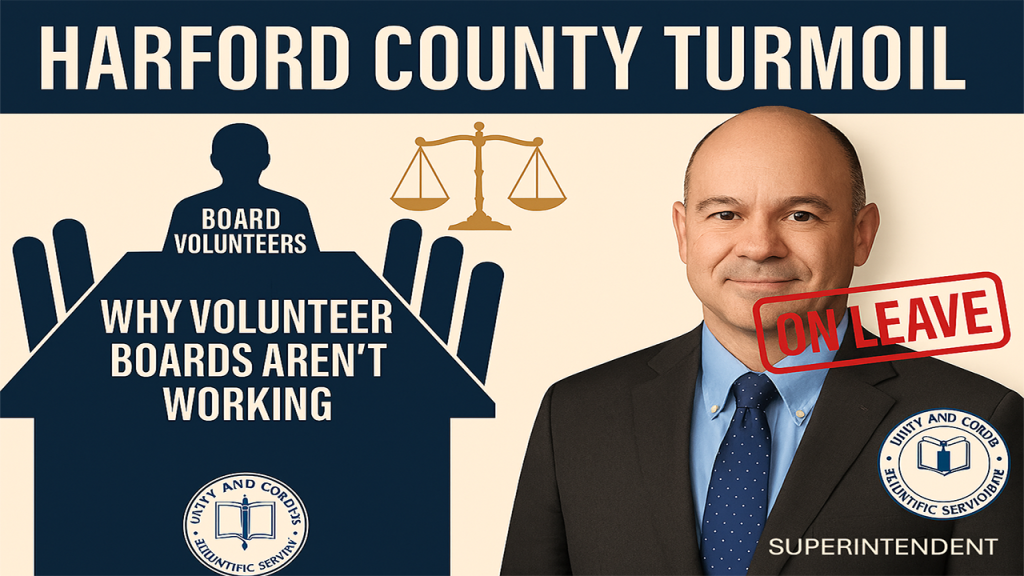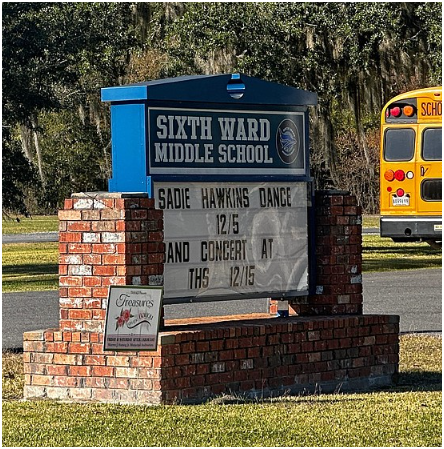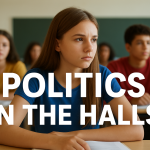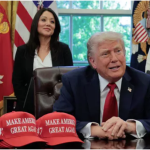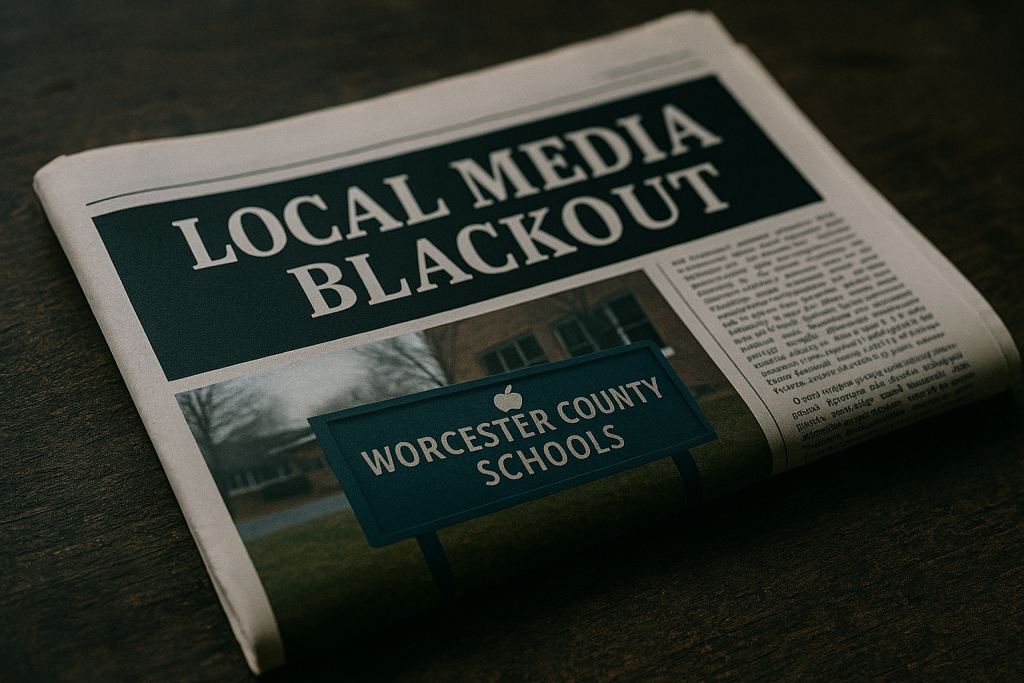
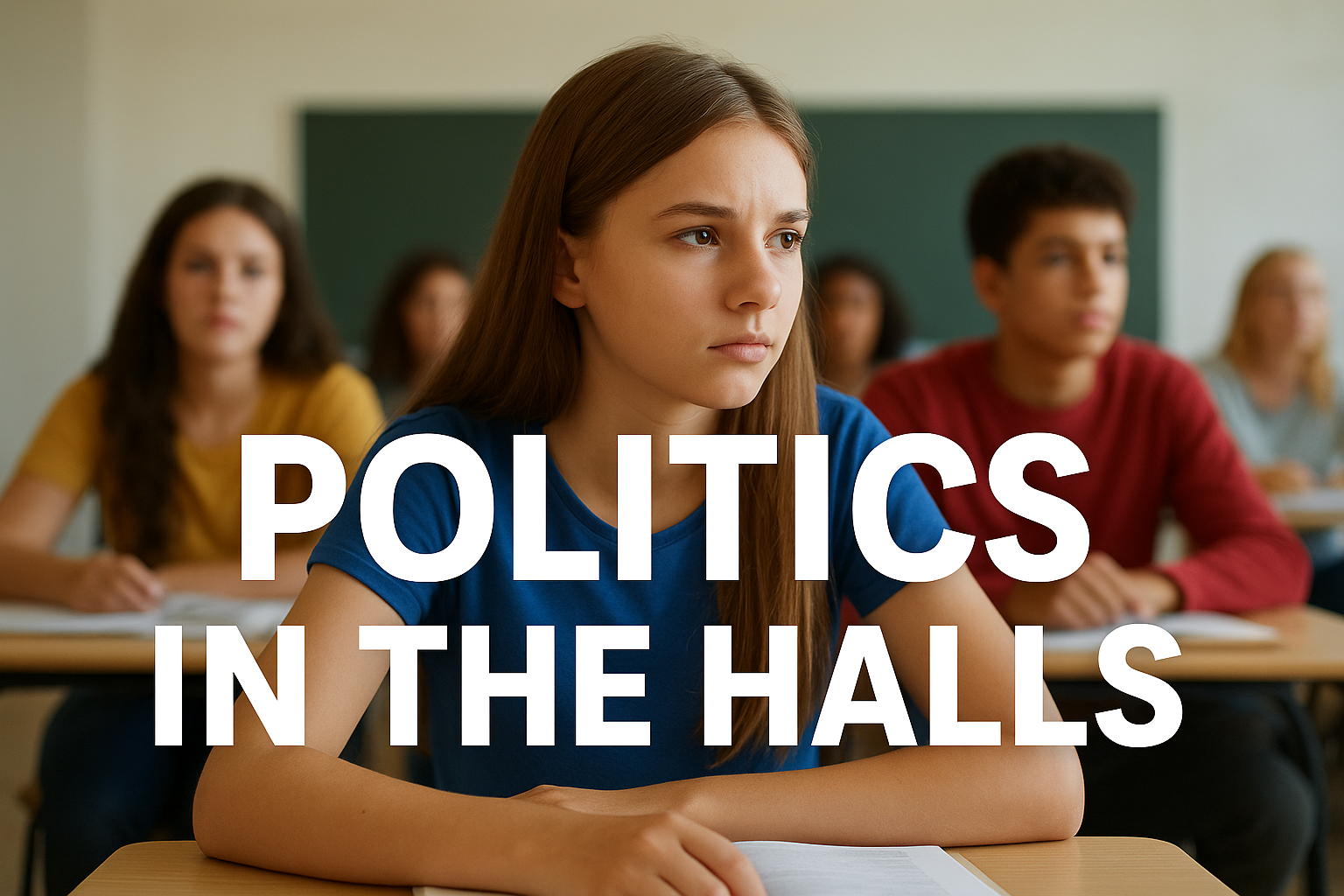
Politics in the Halls
In recent years, the culture of student clubs in high schools has changed. Schools no longer just have sports, debate, or service organizations, but now they include an ever-increasing number of student-led groups with specific political missions. On the national stage, conservative youth movements like Turning Point USA are diving into high schools. The question now is how will this play out in Maryland? Our state may not yet be rocked by mandates from above, but the potential for politically-oriented student groups is rising, and with it, concerns about free speech, school governance, and school culture.
Turning Point USA (TPUSA) reports that its high school “Club America” program is present in more than 1,000 chapters across the country and that interest has skyrocketed this year. For example, in states such as Oklahoma and Texas, state education officials are actively encouraging, or even mandating, high schools to host TPUSA-affiliated chapters.
TPUSA describes its mission as promoting “freedom loving American values,” limited government, and free markets. When a student group is explicitly political, how does that interact with school policy and the role of teachers as sponsors? How might it affect school climate?
Maryland Landscape: What’s Emerging Locally
In Maryland, no statewide mandate currently exists to install, or remove, politically-oriented clubs like TPUSA chapters in high schools. But the policy framework for student organizations is well-established. For example, in the Howard County Public School System, Policy 9020 states that students have the right to their beliefs and perspectives so long as they do not interfere with the rights of others or a school’s ability to provide a safe and supportive environment.
Also, at the state level, the Maryland State Department of Education (MSDE) has governance and policy documents that emphasize values such as equity, engagement, and transformation. (See MSDE Governance & Operations Manual)
While student-led political clubs can be formed under federal law (the Equal Access Act guarantees non-curriculum student groups equal access), the specific club’s mission, membership, sponsorship, and activities may create debate. To date in Maryland, there is limited public reporting of high schools with formal TPUSA chapters, though given the national surge, some districts may begin seeing applications or interest. Districts may already be reviewing their student club policies to prepare.
School Policy and Governance
For Maryland school districts, the presence of a politically-oriented student club creates several issues:
• Is the club student-initiated and student-led (a requirement under equal access jurisprudence)?
• Does the club meet at non-instructional times and avoid disrupting school operations?
• How is a faculty sponsor selected, and what is the role of the sponsor in guiding vs. controlling the club?
• Are school facilities and publication/bulletin rights made equally available to all student clubs?
• How does the club’s political mission align with the district’s values of equity and inclusion (see MSDE Governance & Operations Manual emphasizing “Equity” and “Engagement”)?
• How does the district respond if the club becomes controversial (e.g., protests, petitions, outside sponsorship)?
Because Maryland districts must balance free speech and student initiative with safe and inclusive environments, the onus is on boards, administrators, and sponsors to establish clear parameters.
Perspectives: Stakeholders Weigh In
Student voices: A student may say, “I want to form a group that debates current policy, introduces conservative ideas, and gives students like me a platform.” But such students may also acknowledge they anticipate pushback from peers or parents.
Educators/administrators: A principal might reflect, “We support student leadership and clubs, but we must ensure they don’t become forums for divisive rhetoric or exclude other voices.” This is a crucial point here when “divisive rhetoric” is defined. Also, when we look at excluding other voices, if the nature of the club is to discuss and gather with like-minded students, why would those with opposing views want to participate other than to disrupt?
Parents/community leaders: Some parents may say, “It’s good for students to engage in civic life,” while others may express concern, “What if the club pushes ideology rather than respectful dialogue?” Here is another issue: what does “pushes ideology” mean?
At schools where politically-oriented clubs have already emerged (in other states), community reactions have ranged from enthusiastic to hostile. In Maryland, with its varied demographics (urban, suburban, rural) and diverse political leanings, stakeholder responses are likely to differ district by district.
Impacts on School Climate
The introduction of a politically-oriented student club in a high school can have both energizing and challenging effects on school life. On the positive side, these clubs can foster increased student engagement in civic discourse, offering opportunities for leadership and amplifying voices that might otherwise feel underrepresented. Students can gain firsthand experience in organizing, debating, and advocating for causes they care about, which can enrich their understanding of the democratic process and prepare them for active civic participation.
At the same time, there are inherent risks. Such clubs can inadvertently contribute to polarization among students, particularly if activities or discussions become adversarial or exclude dissenting perspectives. School culture may be disrupted if meetings, campaigns, or debates interfere with instructional time or create divisions among peers. Faculty sponsors and administrators may also feel pressure to navigate sensitive content carefully. They must balance oversight with respect for student expression, a challenge that can sometimes create perceptions of bias or censorship. Finally, questions of equity arise: if the club predominantly represents a single ideological perspective, it may limit inclusive access and reinforce echo chambers rather than broadening student engagement. In Maryland, where the State Department of Education emphasizes equity and meaningful engagement, these tensions are particularly relevant, and careful attention is needed to ensure that student participation strengthens rather than fragments the school community.
Best Practices for Maryland Schools
For Maryland districts considering how to manage or respond to politically-oriented student clubs, clear and consistent guidance is essential. Schools should establish transparent policies that apply equally to all student organizations, whether political or otherwise, specifying that clubs must be student-initiated, meet outside instructional time, and operate under clearly defined faculty sponsor guidelines. Equally important is ensuring that all clubs have fair access to school facilities and other resources in accordance with the Equal Access Act and Maryland policy.
Faculty sponsors play a major role and should receive support on how to guide ideological clubs without exerting undue influence. Encouraging inclusive dialogue is essential; schools can promote forums or debates that welcome multiple viewpoints, allowing civic engagement to flourish without creating an echo chamber. At the same time, administrators must monitor club activity for potential disruptions, ready to intervene if meetings or campaigns materially interfere with instruction or compromise a safe and supportive school climate. Policies such as those from Howard County Public Schools emphasize that students’ rights exist so long as they do not infringe on the rights of others or the school’s ability to maintain a healthy environment.
As Maryland schools consider how to navigate the emergence of politically-oriented student clubs, the national spotlight on Turning Point USA and its founder, Charlie Kirk, offers caution. While TPUSA chapters have energized students and sparked debate across the country, they have also drawn controversy over the limits of free speech and the role of ideology in schools. The challenge for Maryland districts will be striking a careful balance: honoring students’ constitutional rights to express their beliefs, fostering robust civic engagement, and maintaining a safe school environment. How schools respond to these clubs will shape not only campus culture but also the broader conversation about the boundaries of free expression and political activism in K-12 education.
Dig Deeper With Our Longreads
Newsletter Sign up to get our best longform features, investigations, and thought-provoking essays, in your inbox every Sunday.
The MEN was founded by John Huber in the fall of 2020. It was founded to provide a platform for expert opinion and commentary on current issues that directly or indirectly affect education. All opinions are valued and accepted providing they are expressed in a professional manner. The Maryland Education Network consists of Blogs, Videos, and other interaction among the K-12 community.




